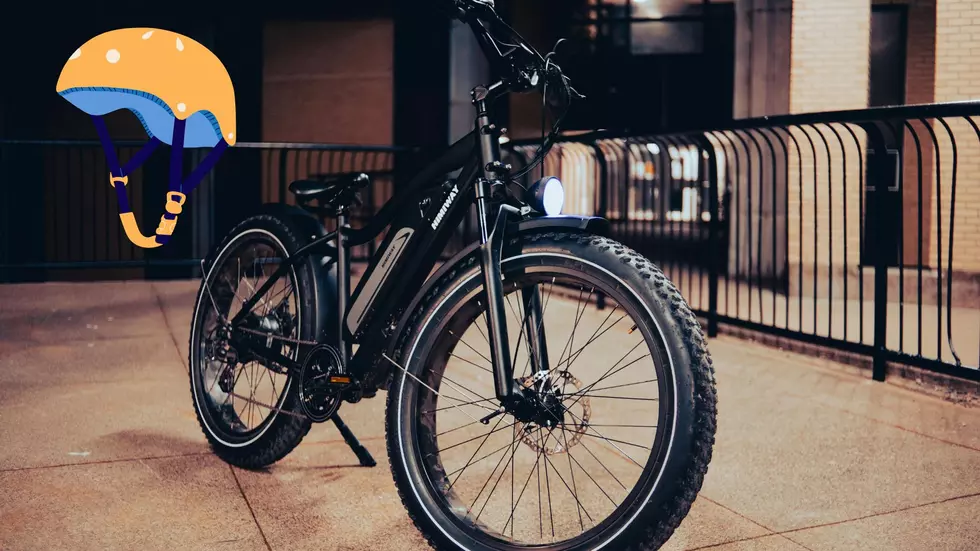
Washington County Search and Rescue Issues Need For Caution As Weather Warms
At long last, the messy (rain, snow, hail, etc.) weather has broken and we seem to be in for a long stretch of our patented sunshine-dominated days here in Southern Utah.
And just in time is a warning from the Washington County Sheriff's Department's Search and Rescue team. As we all get set to go hiking, mountain biking, dirt biking, this caution is being out out there by the men and women who ultimately may have to save your life:
Spring weather is finally here and we have been seeing an increase in search and rescue calls the past couple weeks. It looks like we have a beautiful weekend coming up. Please be careful out there when recreating.
The Search and Rescue specialists offer this advice as well:
- Be sure to bring enough water for yourself and others in your group. Consider taking warmer clothing in the event that you end up waiting several hours for us to rescue you.
- Take it easy on the mountain bike and ATV trails as they are more dangerous due to being washed out from the heavy rainfall.
- Keep in mind that there will likely be thousands of other individuals recreating all over the county. Slow down and take time to visually inspect areas before speeding through them.
And finally, the S & R team wants to make sure are covered, even if something goes wrong:
Remember that we are here if needed, but would prefer you stay safe and not need to be rescued. Have a great safe weekend!
Additional advice from the WCSD Search and Rescue team involves using those ever popular OHVs.
Beginning January 1, 2023, Utah will require all off-highway vehicle operators to complete the Utah Off-Highway Vehicle Education Course. Completion of this 'once-in-a-lifetime' course is required under Utah Code 41-22-31(1)(B) in order for you to operate an off-highway vehicle or street legal off-highway vehicle in Utah."
The purpose of this Off-Highway Vehicle Education Course is to:
- Equip operators with awareness of Utah’s OHV laws and rules;
- Increase rider safety;
- Promote respectful, sustainable, and on-trail OHV operation;
- Promote respect for communities affected by OHV operation.
Completion of this course is expected to take roughly 30 minutes, and consists of 26 questions that are accompanied by educational videos.
- Wear Your Helmet! We advise everyone to wear a helmet. It can save your life. When properly worn, a helmet won’t reduce vision or hearing and helps cut out wind blast. A helmet is mandatory on public land for riders under the age of 18.
- Goggles, gloves, abrasion-resistant clothing/guards, and over the ankle boots are also highly recommended.
- Be alert to oncoming traffic, especially on blind curves or in dips and crests of hills.
- It is illegal to drive an OHV while under the influence of alcohol or drugs.
- It is illegal for an operator or passenger to have an open container of alcohol in the OHV.
- A red or orange “whip flag” must be attached to OHVs when riding in designated sand dune areas.
- Head and tail lights must be used between sunset and sunrise.
- Be sure your brakes will control and stop your OHV.
- Mufflers with an approved spark arrestor are required on all OHVs. (Snowmobiles do not require spark arrestors.)
- While riding on designated routes it is important to notify other oncoming users how many OHVs are in your group. Each operator is responsible to signal how many are following behind them. If 1 other OHV in your group is following, the lead OHV should signal with their hand and hold up 1 finger. The rear OHV operator should signal with a full/closed fist that they are the last in the group.
- OHV use can be so much fun! We all have a responsibility to make sure this fun activity remains responsible and respectful. It is important to be mindful of and respect private property, signs, fences, and gates. Permission is needed to access any privately owned land. Never obstruct the entrance or exit of private property. Respect posted signs, gates and fences. It is up to you to know what trails you can ride on legally.
- On mixed use public lands, there are a lot of people using the trails and a lot of different types of recreation happening. User conflict can create big problems for the land managers and takes time away from maintaining the trails. Be a good ambassador of the OHV community by being friendly and helpful. Respect other users by going slow around them, minimizing dust, sharing the trail, and always yield to non-motorized users.
LOOK: Must-do activities at every national park
Stacker lists the must-do activities at every national park ranked by the annual number of visitors.
More From KDXU 890 & 92.5









